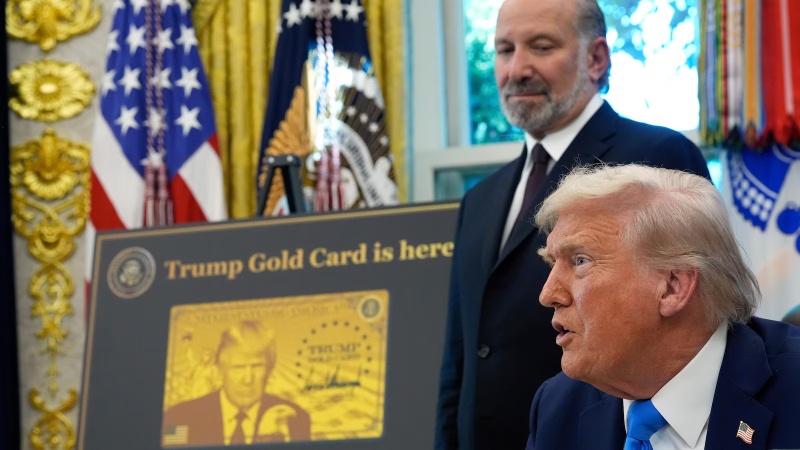In a sweeping move that could reshape the US immigration landscape, President Donald Trump has signed a proclamation raising the cost of applying for H-1B visas to $100,000 per applicant.
The order, signed in the Oval Office on Friday, is aimed at tightening controls on the programme, which Trump described as “one of the most abused” visa categories. “We need workers. We need great workers, and this ensures that the people coming in are actually very highly skilled and not replacing American workers,” Trump said.
White House staff secretary Will Scharf echoed the president’s view, stressing that the higher cost will discourage misuse of the visa system while ensuring companies only bring in talent they cannot find locally.
What is the H-1B Visa?
The H-1B visa is a temporary US work permit introduced in 1990 to allow companies to hire foreign professionals with specialised skills, particularly in STEM fields (science, technology, engineering, and mathematics).
-
Valid for three years, extendable to six.
-
Candidates need at least a bachelor’s degree in a relevant field.
-
Applications go through an online registration and lottery system managed by US Citizenship and Immigration Services (USCIS).
-
Visa holders are entitled to equal pay and conditions as their American peers.
Tech firms like Amazon, Microsoft, and Meta have been some of the largest users of the programme, hiring tens of thousands of skilled workers under H-1B.
Impact on Nigerians
The policy is expected to hit Nigerian professionals hard, especially doctors and IT experts who frequently rely on the programme to secure work in the US.
Howard Lutnick, US Commerce Secretary, revealed that top corporations had already been briefed:

“A hundred-thousand dollars a year for H-1B visas, and all of the big companies are on board. If you’re going to train somebody, train Americans. Stop bringing in people to take our jobs.”
With many Nigerian professionals using the H-1B as a pathway to career growth and eventual permanent residency, the steep fee increase could significantly shrink opportunities.
Tech Giants and the Wider Debate
The H-1B visa has long been a flashpoint in the tug-of-war between Trump’s administration and the US tech industry, which heavily depends on foreign workers. Government data shows that two-thirds of H-1B jobs are computer-related, with many held by immigrants from countries like India, China, and Nigeria.
-
In the first half of 2025, Amazon secured 10,000+ visas, while Microsoft and Meta received over 5,000 each.
-
The annual cap remains 65,000 visas, with an additional 20,000 reserved for advanced degree holders.
Critics argue the programme suppresses wages for Americans, while supporters, including Elon Musk, insist it fills vital skill gaps and keeps the US globally competitive.
Trump’s New “Gold Card” Visa
Alongside the H-1B fee hike, Trump announced a separate “Gold Card” immigration pathway, designed to fast-track visas for those willing to pay a premium:
-
$1 million for individuals seeking expedited visas.
-
$2 million for companies sponsoring a foreign worker.
This, Trump argued, would raise revenue while rewarding immigrants and employers who are “serious about investing in America.”
Bottom Line: For Nigerians and other foreign professionals, the new $100,000 fee could make the H-1B visa far less accessible, limiting career opportunities in the US and forcing companies to reconsider their reliance on global talent.




